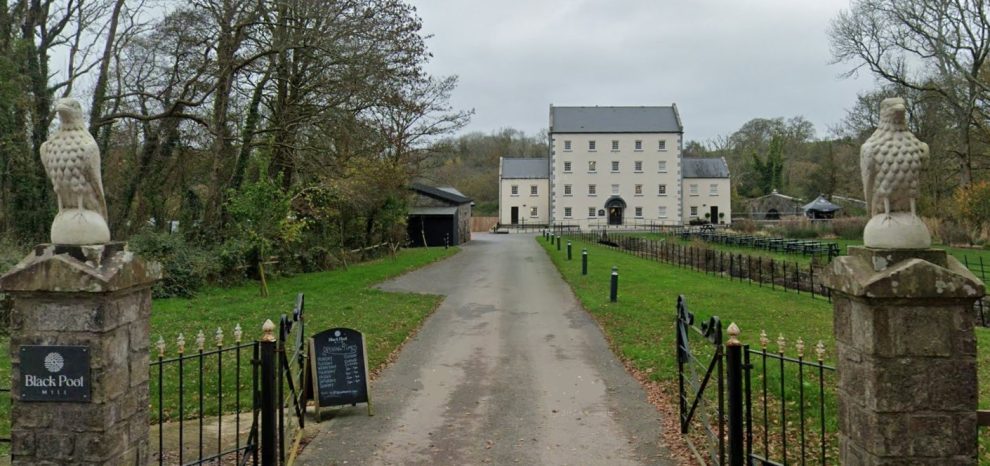AN APPLICATION to rebuild a weather-damaged riverside wall at a historic Pembrokeshire mill and museum, now a restaurant, has been approved by national park planners.
In an application to Pembrokeshire Coast National Park planners, Bluestone Resorts Ltd sought permission for the replacement of a collapsed riverside retaining wall at the listed Blackpool Mill, Blackpool Bridge, near Narberth.
A supporting statement through agent Graham Frecknall Architects said: “The property of Black Pool Mill is a Grade-II-protected heritage asset located on the south bank of the Cleddau River at Blackpool Bridge.
“The property was granted formal planning and listed building consent in 2020 to convert the former museum use to a restaurant with ancillary on site facilities and was opened to the public in July 2023.
“In October 2023 after a spell of considerable rainfall and high tides, a large portion of the existing stone faced, riverside retaining wall located immediately adjacent to the main mill building and to the rear gable of the store building collapsed into the Cleddau River. In November 2023 following liaison with conservation and NRW officers, temporary works were installed to limit further collapse and/or erosion of the retaining wall whilst a permanent solution was sought.
“The proposals for the new retaining wall look to re-create the coursed stone façade of the pre-collapsed riverside wall in modern, structural materials, formed and coloured to match the basement stone façade of the main mill building adjacent.”
The restaurant opened in 2023 after William McNamara, CEO of Bluestone National Park Resort, received permission to restore the mill in 2020. A total of £3 million was spent on preserving, restoring, and transforming the Georgian building and its grounds. The 210-year-old mill had been renovated and rebuilt by skilled craftspeople and engineers who have taken care to preserve its historical character.
They installed 53 traditional sash windows that match the classic Georgian architecture, as well as custom-made staircases.
The original milling equipment, including the connecting rods and braces, was also restored to reflect the mill’s industrial history.
The restaurant created 35 new jobs both front and back of house.
An officer report for the latest application, recommending approval, said: “The wall is to be built of pre-cast ‘Redi-roc’ to a traditional batter, the outer facing giving the appearance of coursed rock-faced masonry, the colour to match the masonry of the mill. The wall will be underpinned by a reinforced concrete foundation on bed rock.”
Detailing the mill itself, the report said: “Blackpool Mill, listed Grade II is a rare and complete survival of a Late Georgian former corn mill, a tall and imposing symmetrical winged group, on the upper tidal reaches of the Eastern Cleddau,” adding: “The site is of archaeological importance, being the site of an iron forge, established in 1760, ceasing production in 1806.”
The latest application, and a related listed building application, was conditionally approved by national park planners.















